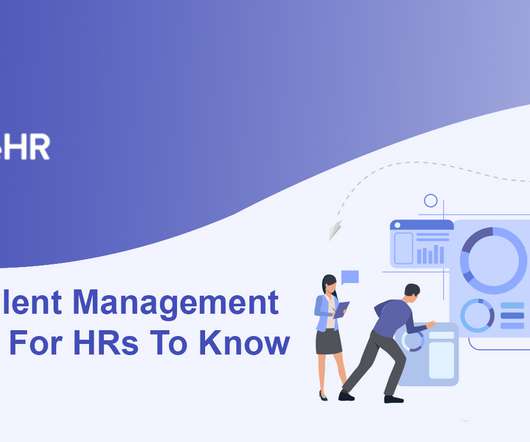People Analytics and HR-Tech Reading List
Littal Shemer
OCTOBER 11, 2022
It offers readers an opportunity to learn and change while enjoying themselves, taking time to contemplate, absorb ideas, and, hopefully, overcome barriers. So here is my People Analytics and HR-Tech reading list on Kindle (no paper books, as I like the trees), ordered chronologically from newest to oldest. First published: May 14th, 2018.

















Let's personalize your content